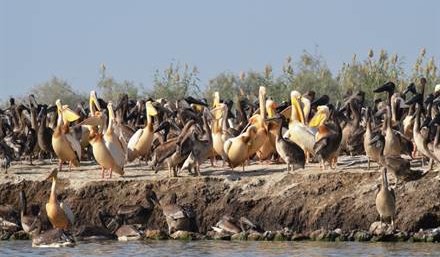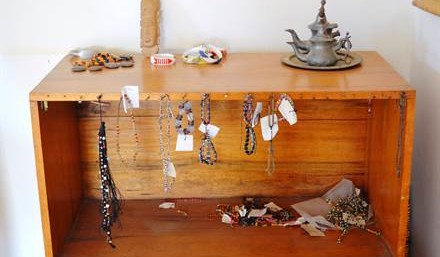
Hand in hand: wetland conservation and tourism in Senegal
-
Community resilience
-
Species
I recently got the chance to experience the natural beauty of Djoudj National Park in Senegal for the first time and see its conservation needs. The Djoudj is a paradise for over a million waterbirds and a lot of other biodiversity. It provides an ideal setting for developing sustainable solutions such as tourism that should allow the surrounding villages, visitors and nature to benefit from this natural wonder.
Djoudj National Park is located in the delta of the Senegal River separating Mauritania and Senegal and forms the first critical stopover wetland site for over a million migrant waterbirds and other birds that have just crossed the Sahara desert.
The wetlands are extremely popular with birds that use the East Atlantic Flyway, stretching from north-western Europe to West Africa (such as the Northern Pintail) and further south to South Africa (Black Tern). Furthermore, many African species that only migrate within the continent depend on the park.

This is also the site where the largest colony of Great White Pelicans in West Africa has been observed. These birds nest colonially in the thousands on a bare mud bank in the middle of the marsh (see picture with adult and brown coloured juveniles that have just learned to fly).
I was amazed to see just how unafraid these pelicans were of us tourists. Large flocks sailed in and landed around our boat in the canal – too close to even take pictures!
In recent years, seven villages that surround the park have received assistance to enhance the recreational value of this beautiful wetland area. They provide boat tours, guided visits into the park, organise ticket sales into the park where they sell some locally made handicraft, as well as provide basic accommodation outside the park through a cooperative agreement. This provides a strong basis for local communities to benefit from the park and to support its continued existence.
We were fortunate to experience the local hospitality when we stayed a night in a cottage with a reed-thatch roof at the village run “campement Njagabar” (Njagabar which aptly means pelican in the Wolof dialect). We were treated to very tasty and locally cooked meals and refreshingly delicious drinks made of hibiscus and baobab. This facility in the Diadiam III village lies conveniently close to the park entrance.

Communities are keen to enhance these activities to ensure even greater benefits, and I look forward to further constructive sustainable tourism developments here in the coming years. The activities are also a promising start to addressing the urgent need for better management of the area. The main challenges include ensuring a long-term supply of water to the marshes and the restoration of canals and marshes to improve water circulation and control invasive Typha and other water plants that currently pose a huge threat.
Destination Flyways
Wetlands International wants to build on our many years of work in the Delta and I visited Djoudj for a “Destination Flyways”* site assessment. With this project we aim to support local government and community efforts to generate revenue through sustainable tourism that contributes to restoration and improved management of wetland habitats. In total eight internationally important migratory bird sites in Africa, Asia and Europe will be selected for Destination Flyways
The Djoudj is the third site we have now visited after Chongming Island in Shanghai, China, and the Chilika Lake in India for the development of this project. I firmly believe that if we do it right, such a sustainable tourism programme will be a great example of the win-win situation for nature, local and international tourists and local communities that can be replicated elsewhere around the world.
The Destination Flyways project is being developed with UN-World Tourism Organisation, Wetlands International, Convention on Migratory Species, The Ramsar Convention on Wetlands, East Asian – Australasian Flyway Partnership, African-Eurasian Waterbird Agreement, BirdLife International and others; the preliminary phase is ongoing with support from the Federal Ministry of the Environment, Nature Conservation, Building and Nuclear Safety of Germany.
